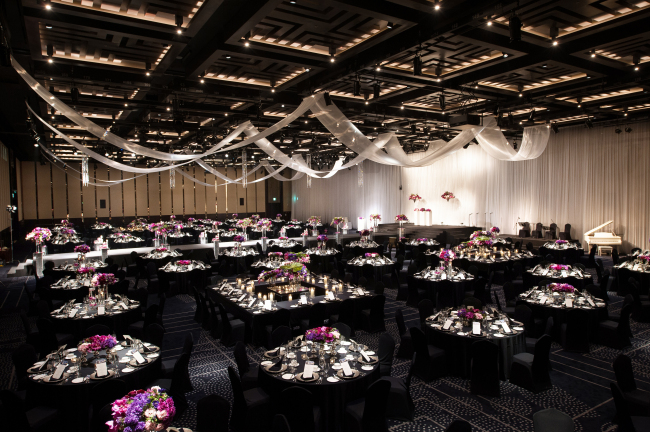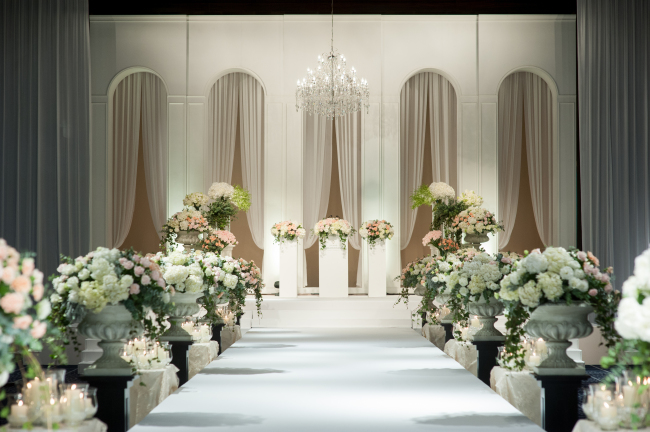At its core, the function of a hotel is to offer guests a place to stay the night. However, in Korea, luxury hotels are widely known for another function: hosting gatherings of various types and sizes.
These events have become an important source of revenue for hotels, which are facing fierce competition from guest houses offering cheaper accommodations and rental services like AirBnB.
“If you look at the sales figures, banquets such as conferences and weddings make more than rooms,” said Hannah Jeon, public relations coordinator at Conrad Seoul.
According to figures from the Tourism Knowledge & Information System, room occupancy rates at hotels in Seoul have been falling, from 80.7 percent in 2011 to 78.9 percent in 2012, and again to 75.2 percent in 2013. Occupancy rates have been falling especially at higher-priced hotels despite the continued increase in demand from larger numbers of tourists coming into Seoul, particularly from China.
 |
| Wedding table decorations at the InterContinental Grand Seoul Parnas. (InterContinental Grand Seoul Parnas) |
To keep their profits up, hotels have turned to targeting locals who are willing to spend more than usual to make their events a bit more special ― whether it’s a baby’s first birthday party, a promotional event or a family reunion.
Luxury hotels have long been used as venues for large-scale conventions or conferences because it was convenient for guests to stay in rooms at the hotel over the course of the event.
In recent years, however, hotels have sought to expand their strength in event-hosting to smaller events such as press conferences and private parties as well. To draw in clients who may be turned off by the idea of an exorbitant price tag, hotels are also creating special banquet packages with lower prices.
“We offer a ‘smart wedding’ package, where it only costs about 100,000 won per guest,” said Lee Ga-hyun, a public relations manager with Lotte Hotel. “Hotels are continuously coming out with discount offers that make it an easy choice for people looking for top-notch services.”
“We’re definitely seeing a drop in MICE (Meetings, incentives, conventions, and events), so we’re running promotions for weddings and other smaller events,” said a marketing manager at the Sheraton Hotel, who wished to stay anonymous.
 |
| Wedding walkway and altar decorations at the InterContinental Grand Seoul Parnas. (InterContinental Grand Seoul Parnas) |
Hotel chains with multiple branches are maximizing their event competitiveness by taking location into consideration.
“For conventions or conferences, our (Jung-gu) branch is popular because it’s at a convenient location and it’s near many other facilities,” said Lee. “But our smaller, private parties are focused more at our hotel in Jamsil because our visitors prefer the quieter ambience.” According to this source, people feel more comfortable holding events at big-name hotels because the brands are known for their service.
“People seek out big hotels even for small events, because they know that they’ll be able to enjoy the same quality service that they would get at a larger event,” she said.
By Won Ho-jung (hjwon@heraldcorp.com)



